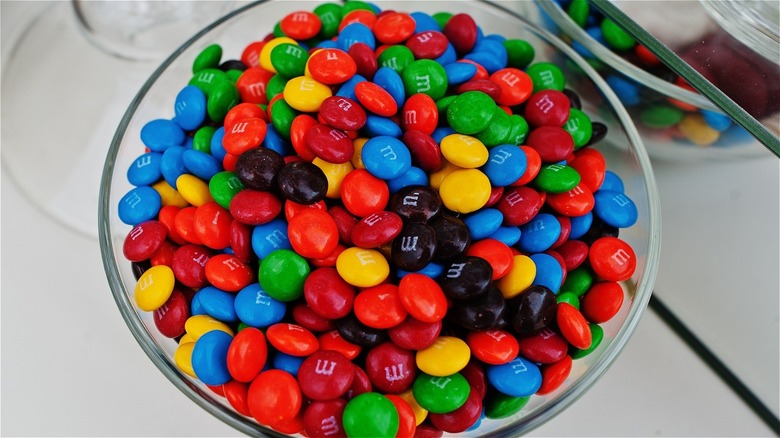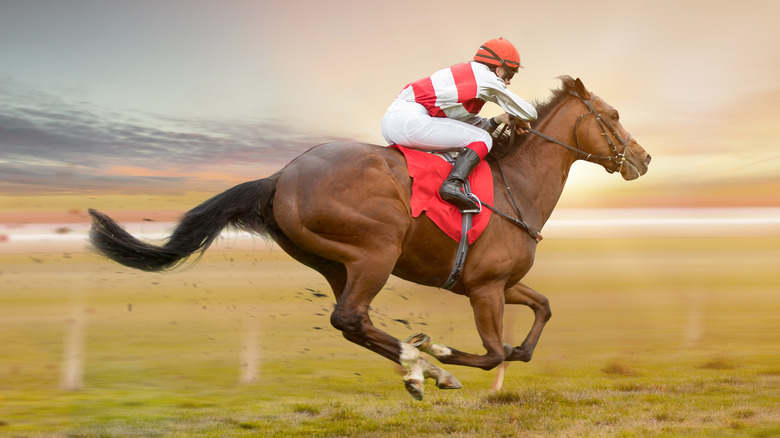You Can Feed M&Ms To A Horse, But You Can't Enter The Horse In A Race
What do you think of when you think of M&Ms? The crispy, chocolatey taste? The colorful characters in the commercials? The different M&Ms flavor options? Chances are that performance-enhancing drugs (PEDs) probably don't come to mind.
For humans, chocolate provides micronutrients like calcium and iron, in addition to the less-favorable ingredients like sugar, per Medical News Today. It also triggers the brain to release endorphins, which are chemicals that can boost your mood and promote happiness, as a National Library of Medicine journal explains, but for horses, the body can have a different reaction.
Horse Network lists chocolate as one of eight foods that you should never feed a horse, due to the presence of a chemical called theobromine, which could be dangerous in large amounts. But this didn't stop a racehorse trainer from feeding chocolate-coated peanut M&Ms to his Florida horse in the late '90s, as The New York Times reported.
The incident led to a study involving three horses that also ate M&Ms, for eight days straight, shedding light on the topic of banned substances for racehorses.
A racehorse that eats Peanut M&Ms can test positive for banned stimulants
The New York Times claims the study took place in 1998 at the College of Veterinary Medicine at Ohio University after a racehorse tested positive for caffeine, a banned substance for racehorses. The trainer claimed the caffeine was the result of peanut M&Ms, not Performance Enhancing Drugs.
In an attempt to simulate the experience that the trainer's horse had, the Ohio University researchers fed three horses 20 Peanut M&Ms each for eight days in a row. They then checked the horses' urine after the final feeding and found "detectable concentrations of the stimulants caffeine and theobromine." These stimulants are banned because they are believed to behave the same way as steroids and other PEDs do for humans.
ScienceDaily claims 20 Peanut M&Ms contains 6 mg of caffeine and 50 mg of theobromine. Dr. Sams, a professor involved in the study, told ScienceDaily that these amounts likely weren't large enough to physically affect a horse. In fact, he states that "it would take several grams of caffeine to affect the performance of a 1,000-pound racehorse."
Although the Association of Racing Commissioners International considers any foreign substance found in a horse's urine sample a violation of the commission's rules, the horse trainer was not penalized. However, this doesn't mean the trainer of another racehorse with the same findings will have the same outcome. With that said, it's best to err on the side of caution and avoid feeding horses chocolate altogether.

